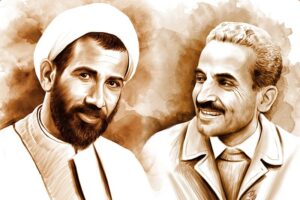Brazil is the largest producer of sugarcane and ethanol in the world. It is also a leader in the technology used for ethanol production
Published Date – 02:10 PM, Sun – 17 September 23

New Delhi: India and Brazil have started talks to mutually resolve a sugar related trade dispute at the World Trade Organisation (WTO) and as part of the solution the South American nation may share ethanol production technology with New Delhi, an official said.
Brazil is the largest producer of sugarcane and ethanol in the world. It is also a leader in the technology used for ethanol production.
“Few rounds of talks have been held as part of our efforts to resolve the dispute. We have also held inter-ministerial meetings here. Brazil is saying that they will share with us technology for ethanol (production). It is a positive thing,” the official said.
Ethanol is used to blend with oil to power vehicles. Use of ethanol, extracted from sugarcane as well as broken rice and other agri produce, will help the world’s third largest oil consumer and importing country cut its reliance on overseas shipments. India currently is 85 per cent dependent on imports for meeting its oil needs. Also, it cuts carbon emissions.
There is a target of 20 per cent ethanol blended petrol by 2025.
India would also have to offer something as part of the mutually agreed solution (MAS) to resolve the dispute at the Geneva-based multi-lateral body.
Recently India and the US have ended six trade disputes and have also agreed to terminate the seventh case. As part of the solution, while New Delhi removed retaliatory duties on 8 American products like apples and walnuts, the US is providing market access to Indian steel and aluminium products without levying extra duties.
The official said that India is also following a similar process for other complainants of the sugar dispute at the WTO.
In 2019, Brazil, Australia and Guatemala dragged India into the WTO’s dispute settlement mechanism alleging that New Delhi’s sugar subsidies to farmers are inconsistent with global trade rules.
A WTO dispute settlement panel on December 14, 2021, ruled that India’s support measures for the sugar sector are inconsistent with the global trade norms.
In January 2022, India appealed against the panel’s ruling at the WTO’s appellate body, which is the final authority to pass rulings against such disputes. The appellate body, however, is not functioning due to differences in the countries on appointments of members of the body.
Brazil is the largest producer and exporter of sugar in the world. India is the world’s second-largest producer.
Brazil, Australia and Guatemala, which are members of the WTO, had complained that India’s support measures to sugarcane producers exceed the de minimis level of 10 per cent of the total value of sugarcane production, which according to them was inconsistent with the WTO’s Agreement on Agriculture.
They had also flagged India’s alleged export subsidies, subsidies under the production assistance and buffer stock schemes, and the marketing and transportation scheme.
According to WTO rules, a WTO member or members can file a case in the Geneva-based multilateral body if they feel that a particular trade measure is against the norms of the WTO.
Bilateral consultation is the first step to resolve a dispute. If both sides are not able to resolve the matter through consultation, either can approach the establishment of a dispute settlement panel. The panel’s ruling or report can be challenged at the World Trade Organization’s Appellate Body.
Interestingly, the appellate body of the WTO is not functioning because of differences among member countries to appoint members in this body. Several disputes are already pending with the appellate body. The US has been blocking the appointment of the members.
The bilateral trade between India and Brazil increased to USD 16.6 billion in 2022-23 as against USD 12.2 billion in 2021-22. Trade gap is in the favour of India.
During the 2021-22 sugar marketing year (October-September), India exported 110 lakh tonnes of sugar and became the second largest exporter of sugar in the world and earned about Rs 40,000 crore worth of foreign exchange.
For the current 2022-23 marketing year ending this month, the Centre allowed export of 61 lakh tonnes of sugar. Mills have already shipped 60 lakh tonnes.
The Centre is yet to decide on exports for the next 2023-24 marketing year, starting next month. As the current sugar season (October-September) 2022-23 is coming to an end, India has already crossed sugar production of 330 lakh tonnes, excluding the diversion of about 43 lakh tonnes for ethanol production.
The blending of ethanol with petrol has increased to 10 per cent in 2021-22 marketing year from just 1.53 per cent in 2013-14. To achieve the target of 20 per cent by 2025, about 1,016 crore litres of ethanol would be required. About 334 crore ethanol would be required for other usage.
WTO member countries can resolve disputes outside the dispute settlement mechanism and later inform the multi-lateral body about the same.




